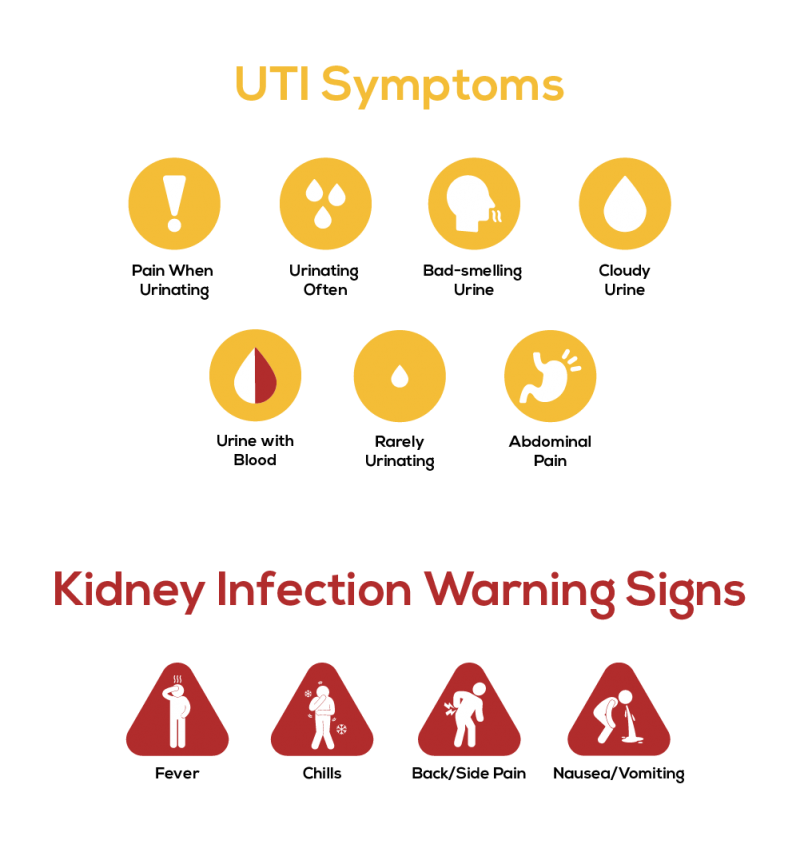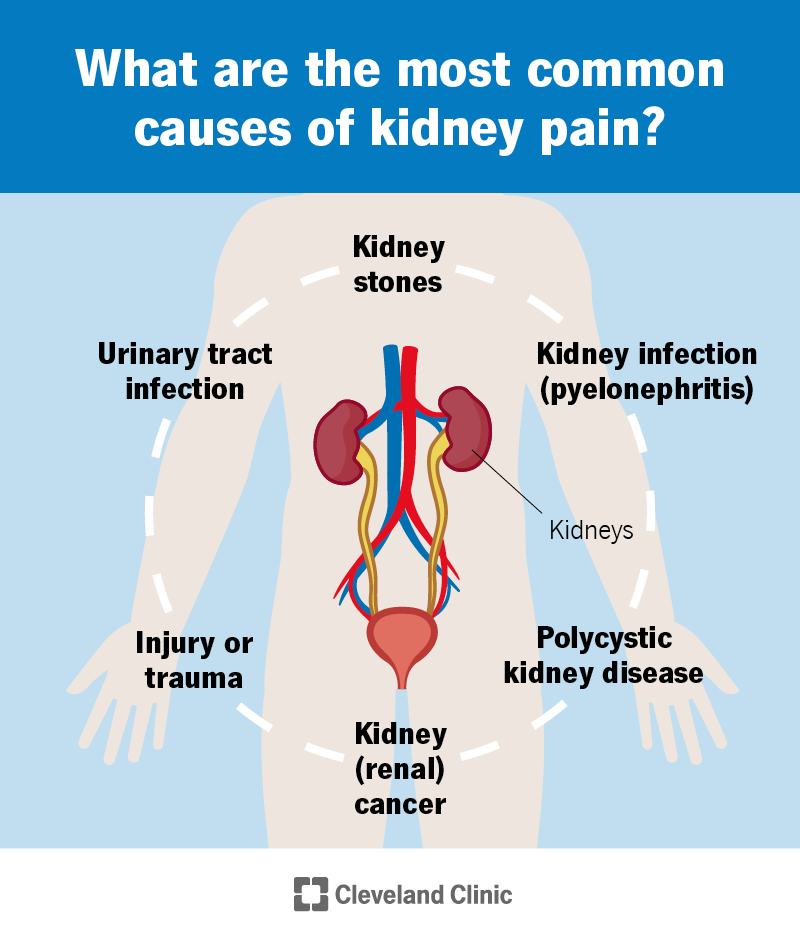Kidney Stones vs UTI: Necessary Details on Treatment Options and Prevention
Kidney Stones vs UTI: Necessary Details on Treatment Options and Prevention
Blog Article
Understanding the Key Differences Between Kidney Stones and Urinary System System Infections: A Comprehensive Introduction for Patients
Comprehending the differences in between kidney stones and urinary tract infections (UTIs) is important for people who might be experiencing comparable signs and symptoms yet face greatly various wellness challenges. While both conditions can manifest pain in the reduced abdominal area or back, their underlying causes, analysis methods, and treatment procedures split considerably. A nuanced comprehension of these differences not only aids in accurate self-assessment yet also informs discussions with healthcare providers. As we check out these vital aspects, it ends up being clear that acknowledging the distinct attributes of each problem can profoundly affect patient end results. What might be the most effective strategy to dealing with these differences?
Summary of Kidney Stones
The development of kidney stones, a excruciating and often devastating condition, underscores the vital significance of preserving kidney wellness. Kidney stones, likewise referred to as kidney calculi, are strong masses that create from crystals in the urine. These stones can differ in size from a grain of sand to a golf sphere and can reside in any kind of part of the urinary system tract. The key sorts of kidney stones consist of calcium oxalate, calcium phosphate, uric acid, struvite, and cystine stones, each with unique reasons and threat variables.
Numerous factors add to the development of kidney stones. Furthermore, metabolic problems and particular medical problems might predispose people to stone formation.
Symptoms of kidney stones can include extreme flank pain, hematuria, and queasiness, which commonly prompt urgent medical assessment. Treatment options vary, ranging from boosted liquid consumption and dietary adjustments to medical interventions such as lithotripsy or surgical elimination, depending upon the size and area of the stones. Understanding these elements is crucial for reliable avoidance and monitoring.
Summary of Urinary System System Infections
Urinary system tract infections (UTIs) stand for a common yet substantial health and wellness issue, affecting millions of people each year. These infections happen when bacteria get in the urinary system, which includes the kidneys, ureters, bladder, and urethra.
The threat factors for developing a UTI include sex, certain sorts of contraception, urinary retention, and a history of previous infections. People with damaged body immune systems or pre-existing conditions, such as diabetes, might also go to greater danger. UTIs can be classified right into two main types: straightforward and complex. Straightforward UTIs are normally restricted to the bladder and are much more common in healthy and balanced people, while complex UTIs might include the kidneys and take place in those with underlying health problems.
Trigger medical diagnosis and therapy are important to protect against complications, such as frequent infections or kidney damages (Kidney Stones vs UTI). Usually, UTIs are treated with anti-biotics, and preventive measures can be employed for those with frequent incidents
Usual Signs And Symptoms Contrast
Symptoms of urinary system tract infections and kidney stones can often overlap, leading to confusion in medical diagnosis. In contrast, kidney stones have a tendency to trigger serious, sharp discomfort that emits from the back to the lower abdominal area and groin, usually defined as colicky pain.
Furthermore, UTIs might be come with by high temperature and chills, especially in extra severe situations, while kidney stones can lead to nausea or vomiting and throwing up due to extreme discomfort. While discomfort throughout peeing is a characteristic of UTIs, kidney stones generally present with even more intense discomfort episodes, which might go and come.
Medical Diagnosis Methods
How can health care experts precisely separate in between kidney stones and urinary system system infections? The analysis process starts with a comprehensive medical history and a comprehensive review of the person's signs and symptoms. Clinicians frequently carry out a physical exam, which might expose tenderness in the abdomen or flank region, assisting the analysis path.
Lab tests play a vital role in differentiating between these two problems. Kidney Stones vs UTI. A urinalysis can recognize the existence of blood, crystals, or bacteria, which are indicative of either problem. In situations of urinary tract infections, the urinalysis may show a significant visibility of leukocyte and nitrites, while kidney her explanation stones might offer with details crystals
Imaging research studies, such as abdominal ultrasound or computed tomography (CT) checks, are important for imagining kidney stones. These imaging methods allow doctor to analyze stone dimension, place, and potential obstructions in the urinary system tract. In contrast, urinary system system infections typically do not call for imaging unless complications are believed.
Together, these analysis approaches equip healthcare experts to accurately separate and diagnose in between kidney stones and urinary tract infections, ensuring that see patients get appropriate care and management.
Therapy Alternatives and Prevention
While both kidney stones and urinary system infections (UTIs) require timely treatment, their management approaches differ substantially.
The therapy for kidney stones frequently entails pain administration, hydration, and in some instances, medical treatments such as extracorporeal shock wave lithotripsy (ESWL) or ureteroscopy to damage or get rid of down stones. People are often encouraged to increase fluid intake to facilitate stone flow and lower recurrence. Dietary alterations may also be required, depending upon the stone kind.
In contrast, UTIs are mostly treated with anti-biotics to eradicate the bacterial infection. The specific antibiotic suggested relies on the microorganisms identified and local resistance patterns. Additional procedures, such as increased liquid consumption and urinary system anesthetics, might assist reduce signs and symptoms.
Prevention methods differ too; for kidney stones, keeping appropriate hydration and adhering to nutritional restrictions can be reliable. For UTIs, preventive strategies include correct hygiene techniques, peing after sexual intercourse, and possibly preventative antibiotics for recurrent infections. Understanding these therapy and prevention methods is necessary for effective administration and to lessen the risk of issues related to both conditions.
Verdict

Recognizing the differences between kidney stones and urinary system tract infections (UTIs) is important for individuals who might be experiencing comparable symptoms yet encounter greatly various wellness challenges. The key kinds of kidney stones consist of calcium oxalate, calcium phosphate, uric acid, struvite, and cystine stones, each with distinct reasons and risk variables.

Report this page